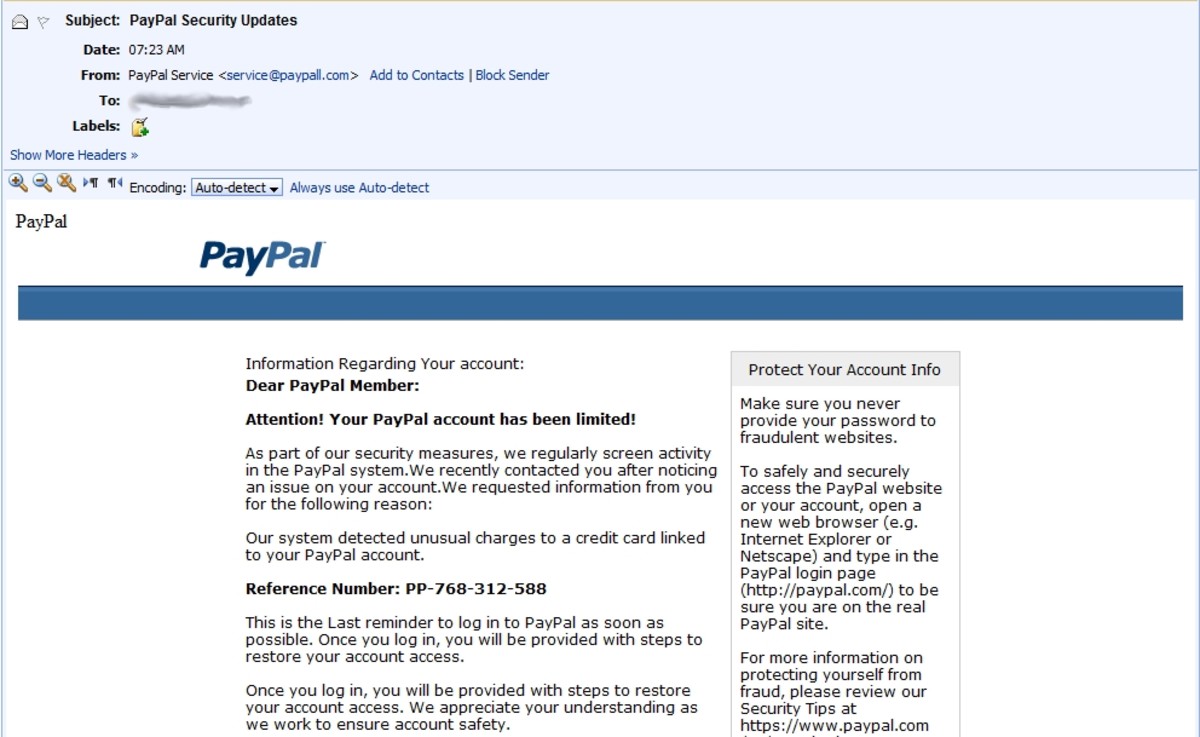10 Tips on Removing Your Personal Information from the Internet

Your Personal Information on the Internet
No matter how much you try to prevent it, your personal information is available for anyone to see on the internet. Basic details are available, but if people are willing to pay money, they can obtain a lot more information about you. The worst part is that this information may not be accurate at all. So if you are going through a background check for a job, having identity theft issues, etc., it will be your responsibility to clean up these records.
However, you can prevent all of this from happening if you work to delete yourself from the internet. This can save you a lot of headache in the future and give youself some peace of mind.
Privacy is not an option, and it shouldn't be the price we accept for just getting on the Internet.
— Gary Kovacs
Search for Yourself on the Internet
Do the following so you can determine what websites have your personal information:
- Go to any search engine. The first step is to search for yourself on the internet. Search engines, like Google, will allow you to search for your personal information to determine what websites may have your information. Don't search for sensitive information, such as your Social Security Number.
- Type in the appropriate information you wish to search for. Searching various ways will increase your chances of finding out what websites have your personal information. You can also search for various types of websites, and from those websites, search using your personal information. These websites can be sites that do criminal background checks, real estate checks, employment checks, etc. More information can be found in the table below.
- Open any link that may have any personal information about you. Open each link in individual tabs so they can be reviewed separately. Also, open up any websites that claim to have information on people, phone numbers, etc. However, be careful about what links you click on, as some websites may try to steal information from your computer.
- Review each website to determine if your personal information is on there. Look out for cues showing that if you pay more money, more information will be revealed. Those are the websites you are looking out for. However, some websites also provide this information for free!
- Do the search again. Search results change all of the time, so searching in different ways, phrases, etc. may produce more results for you to look through. Again, the table below can offer more information on that.
What Information About Yourself to Search for on the Internet
Run This Information
| Do Not Run This Information
| Website Types to Search
|
|---|---|---|
First and Last Name
| Social Security Number
| Reverse Phone Look Up
|
Phone Number
| Driver's License Number
| Name Look Up
|
Place of Employment
| Misc. Identification Numbers
| Address Look Up
|
City and State of Birth
| Checking Account Number
| E-Mail Look Up
|
City and State Previously Lived At
| Credit Card Number
| Username Look Up
|
City and State Currently Living At
| Passwords
| Profession Look Up
|
E-Mail Address
| Misc. Account Information
| Background Check
|
Relatives Information
| Any information you don't want to chance getting out.
| Criminal Records
|
Ensure not to run sensitive information. That information can be tracked and could fall into the wrong hands if the website doesn't have sufficient security.
Deleting Yourself from the Internet
Now that you have found the websites that have your personal information, it's time to get your information removed from those sites. Here's how:
- Search the website using your personal information. Clicking the links you found while searching should take you where your information is located, but not always. You may need to search for yourself again.
- Look for a way to "opt-out" from the website. Once you find your information, find any option that allows you to opt-out of having your personal information on the website. Unfortunately, you may need to provide some personal information to have yourself removed. Do not provide more than what is already on the website.
- If the website requires you to make an account to remove your information, do not do it. Instead, find an e-mail address for the website and e-mail them a request to remove your information. Provide a link to the information, if possible. Most importantly, be polite. If necessary, you may have to search for a contact e-mail for the website, as they try to keep that hidden deep so people are unable to find it. An example of a letter I use can be found below.
- Wait for an e-mail confirmation. These websites will e-mail you confirming the removal, or provide you with a link to remove the information yourself. Follow the instructions.
- Repeat the process from the very beginning. These websites will remove your information, but there is no guarantee that it will remain removed. Some of them will even state that. So repeat the process in a few weeks and see if any additional information needs to be removed.
Letter to Send to Websites That Have Your Personal Information
Below is an example letter I have sent to multiple websites that had my personal information that I wanted to removed. In most cases, it worked the first time. I recommend you include all of the following information:
I request that all information about me be removed from your website immediately. I did not request my information be placed on your website. I will not create an account to have my information deleted, nor will I provide anymore information than what is currently on your website. Please remove my information and advise me that it has been removed. A link is provided below. I was able to locate this record by searching (name, date of birth, etc.) on your website.
(Link to your information, if available)
Thank you.
Be as respectful as possible in your e-mail. If you are rude, then they have no reason to remove your information off of their website. If they respond back stating you need to fax a form in, provide an ID, etc., then reply using the below response.
I will not provide any further information than what is already provided on your website. I fear that if I provide or confirm more information, that it will just be placed on your website without my knowledge. I demand my information be removed from your website immediately, as I did not authorize it to be there in the first place.
Thank you.
This response is a lot firmer than the last one. Do not give in to their demands, as they can remove your information without needing a copy of your ID, a faxed form, etc.
Find Information About Yourself Online?
Ever find information about yourself online that you did not want to be there?
Keeping Personal Information from the Internet
There are preventative steps you can take to ensure your personal information doesn't get on the internet:
- Don't share information about yourself. Use a throwaway e-mail address, abbreviate your name, etc. The less details you give out, the better.
- Make a fake profile. Unless it's for financial or other legal related reasons, you can make your own identity on the internet. Find out more here.
- Keep your social media profiles private. If you want to engage in social media, such as on Facebook, make your profiles private for you, family, friends, etc. If they are public, then these websites can crawl your profile for information.
- Don't talk to people online. As hard as this can be, try to limit how much you talk to others online. The more information you give out, the more chances that it could be shared with others.
- Be careful of phone calls, letters, etc. These websites can call and ask for information without a legitimate reason. So be hesitant about providing your information these ways as well.
- Don't pay for services that protect your personal information. These services aren't worth the money when you could spend an hour doing the work yourself. You could end up signing up for hidden services, or worse, giving websites full access to your personal information that could be sold to the very websites you are trying to remove your personal information from.

Removing Outdated Links
One step a lot of people forget about is removing dead links. Even if the website removes the information, the search results can still appear on Google and other search engines! Google will be the one you want to primarily focus on, since that is the most widely used search engine.
Go to the Google Removal Request Form to submit dead links to be removed from Google search results. Just fill in the appropriate URL and wait for the results. Assuming the page is no longer available, it will be removed from Google within a couple of days.
If you are concerned about other search engines, then find the appropriate way to remove dead links from those search engines. Ensure to search for them in the search results prior to submitting a dead link to be removed.
There is a good chance dead links will be removed, in time. But if you want to be absolutely sure the information is removed as soon as possible, then try this method.
Protecting Your Online Identity
- 10 Tips on Protecting Your Identity Online
If you want to create a new online identify, follow the tips in this article.
This content is accurate and true to the best of the author’s knowledge and is not meant to substitute for formal and individualized advice from a qualified professional.
© 2013 David Livermore








